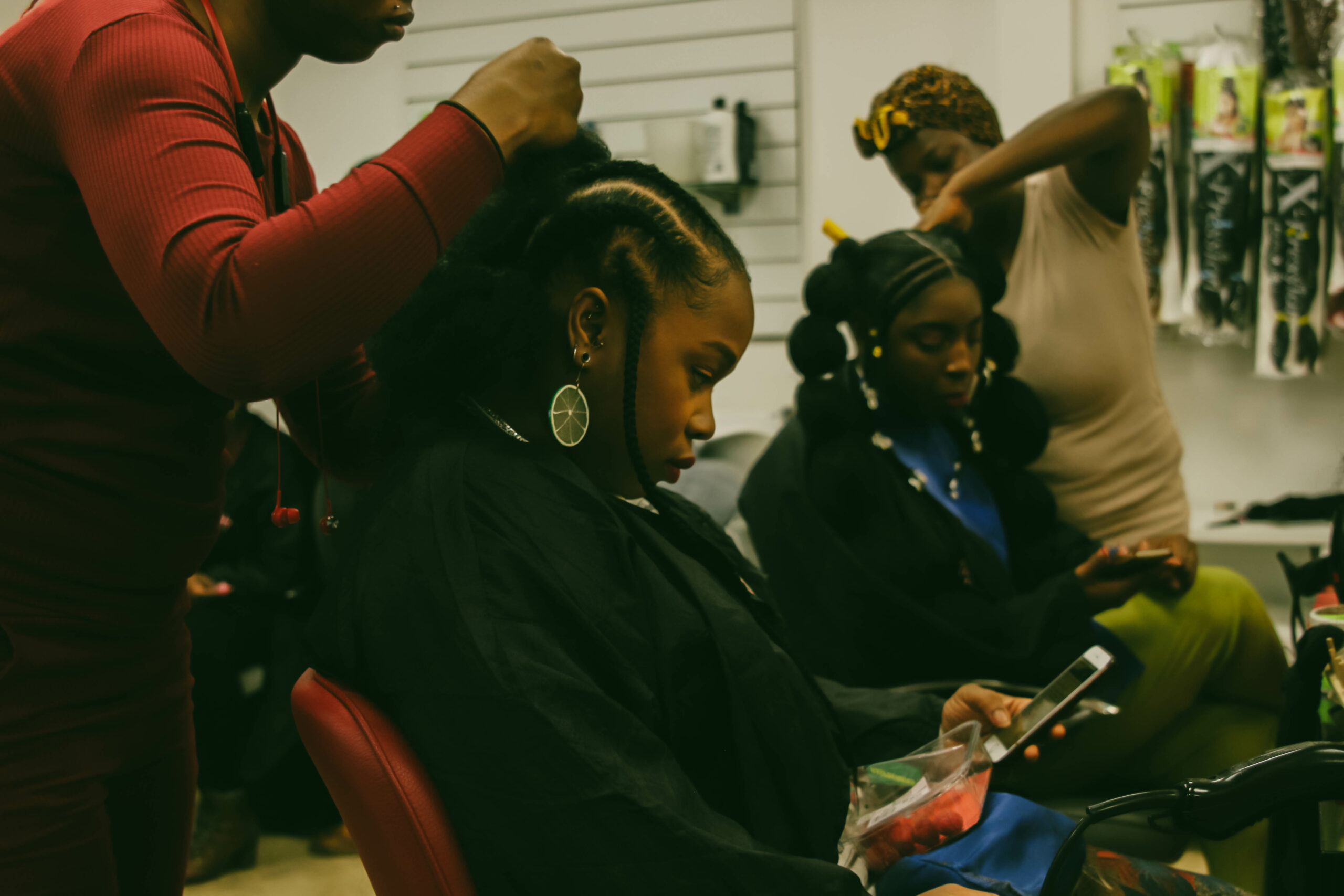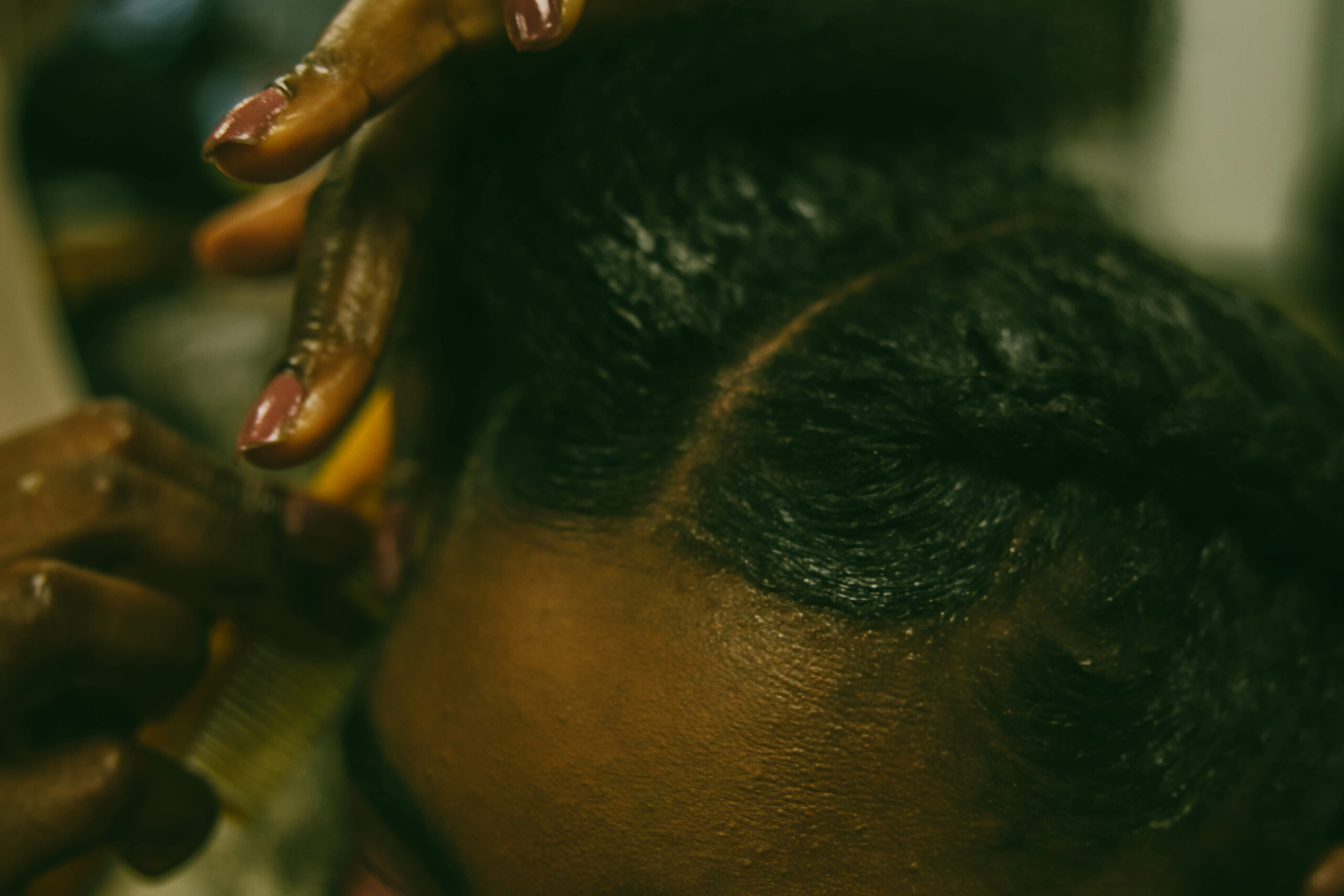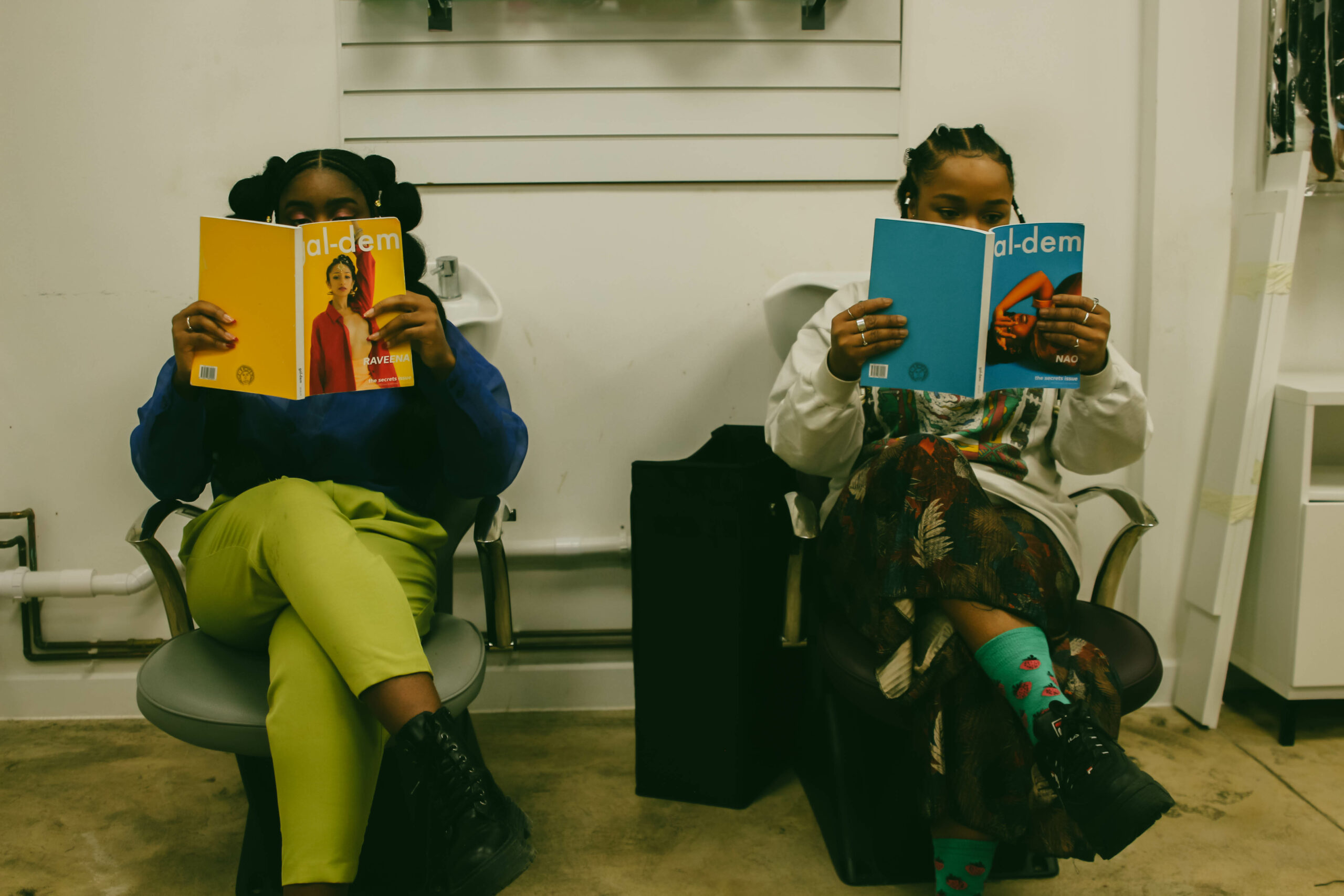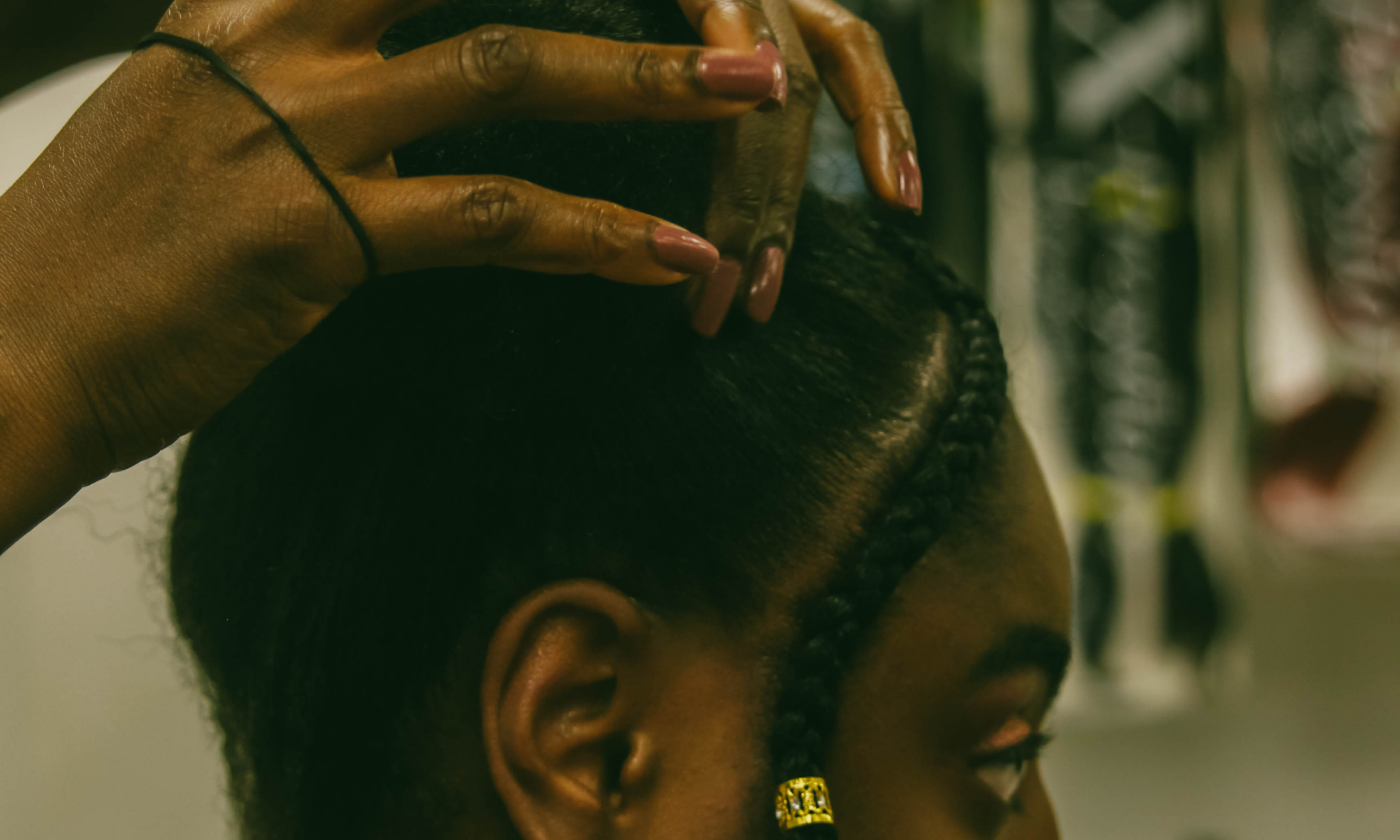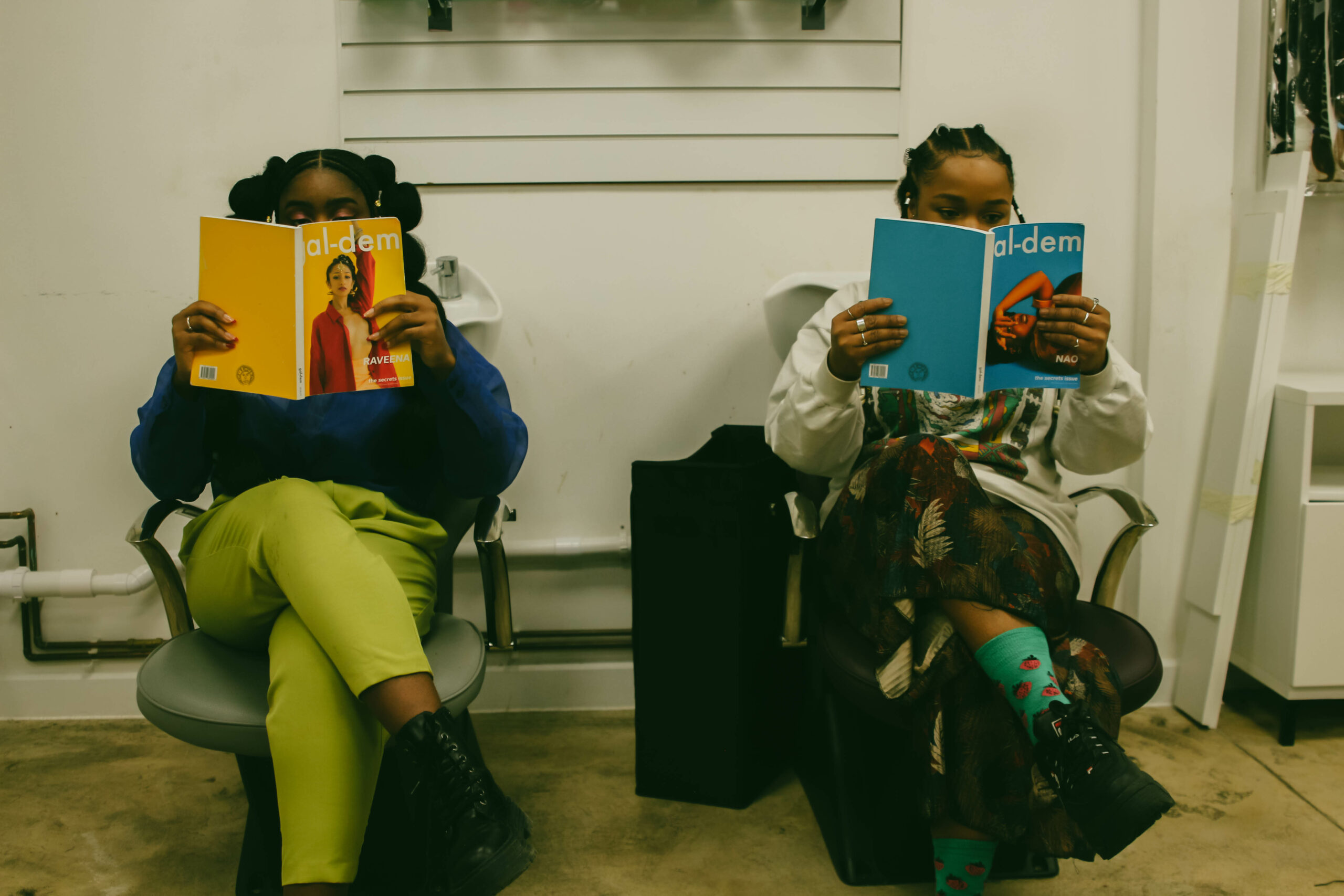
Photography by Yossy Akinsanya / Peckham Palms
Afro Answers: how to save time with back to school styles, and how to fight hair discrimination at work
For World Afro Day, trichologist Ebuni Ajiduah explores hair discrimination in work and school and why all Afro hair is perfectly professional.
Ebuni Ajiduah
15 Sep 2021
This week, social media will be full of parents and guardians posting pictures of how they sent their children to school versus how they arrived back home. A hilarious spot the difference where the child in question looks pristine in the first picture and wildly dishevelled, stained with hair escaping in the second.
In the UK, school uniforms can be quite strict and leadership teams will take astounding measures to ensure adherence in appearance. Some go as far as standing at the gates in the morning and turning away anyone who has the wrong colour shoes or – god forbid – trainers, a logo on their bag, a tie or a skirt too short. So, for older students who are trying to develop an outward display of their personality, hair can be a means of expression.
Although dress codes are quite similar across the board, many schools seem to hone in on students with Afro hair and completely disregard cultural differences in hair practices and styling. Some make restrictive or racist suggestions about the styles, severely punishing students who fall out of line.
Several cases have made the news, including the Pimlico Acadamy students who staged a protest for reasons including changes to the uniform policy that prohibited hairstyles that “may block the view of others”. Although our hair grows up and out, who is really walking around with a 6ft Afro? This isn’t a Ludacris video! In another case, a pupil was denied entry to a school because he had canerows, which the High Court found to be unlawful.
While these stories made the news, what about all the pupils who are discriminated against, given detentions, days of isolation or are constantly harassed by teachers for a Nike tick in their hair or some 1b/27 braids?
What should I do if I or someone I know is being discriminated against because of our hair?
In better news, some schools are trying to improve policies with the help of the Halo Collective, a group of young Black organisers who aim to end hair discrimination for good.
If you are wondering how you can help, even if your school days are long behind you, visit your local council’s website and find the schools in your area. The dress code should be readily visible on the website have a look to see if there is any discrimination in the wording about Afro hair.
Write or email the school offering some advice about how it could be changed to be more inclusive (example below). This is a good way for all of us to be engaged in our communities and make sure that our younger generation do not face some of the hardships that we do.
The best back to school hairstyles
Extensions – Once you have made sure you are not breaking any rules with the colour, extensions are a fuss-free way to see through the term without the daily hassle of full styling, but also allows for variety.
Singles, box braids, knotless, or micros, in this case, size doesn’t matter but choose wisely as too big and the style won’t last for as long without lots of gel, or too small and you will really learn who your enemies are when everyone declines to help you take them down.
Crochet braids and locs – Not a fan of sitting for long periods of time but still want a braid or loc styles? Then choose crochet braids. The hair is first canerowed and extensions are fed through the gaps. The benefits of this style are that you can reuse most extensions and avoid heavy hair while keeping your edges intact. Beautycanbraid on YouTube has excellent tutorials.
How to get people to leave you alone in the workplace
It can be hard to have these conversations about our hair at work – trust me, I spent many therapy sessions role-playing and doing up ‘mirror bitch’ to practice how to tell my colleagues to keep their hands out of my hair.
So, if you’re worried about stares and inappropriate touching, here are few things you can try (this is for entertainment purposes only and results may vary):
· The Viola Davis – This mobility exercise from How To Get Away With Murder will not only keep hands out of your hair but it will also make your limbs agile adding to your daily exercise routine.
· The Solange Altar – Why not have ‘Don’t touch my hair’ softly playing on a loop? Keep a framed picture of the famous elevator scene at your desk. When nosy colleagues see it, you can direct them to google the story. They should get the gist that even gentle-looking souls can be dangerous when provoked.
· Stickers, clothing signs and apparel – Etsy is awash with Black designers selling merch about Afro hair, mugs, water bottles, pins, the list is endless! Or get creative and make something of your own.
· Mirror bad behaviour – A wise woman once said ‘Let us learn how to respect ourselves, or else we will open our nyash…so be careful OK!” It is not everyday be the bigger person, sometimes choose (metaphorical) violence. Here is a great video to give you some tips to try.
· When asked about your weekend, lie about an altercation where someone *insert inappropriate but common white nonsense behaviour* and how you dealt with it. Then end with the saying, “if you can’t hear you must feel”, while looking deep into their eyes/ or the direction of the most likely culprit.
· Report to HR and start an employment tribunal. My beloved, your God(s) are ready to answer your prayers and a payday awaits. I mean who can really put a price on hurt feelings? The people over at citizens advice are saying you can get £45K for lengthy discrimination. So get you a little diary and start recording everything and smile as they run your money up (internally though, of course).
While this list is largely in jest (except if you win money, as I only require a small donation), I want to emphasise that it is not on US to solve the problems THEM create. So, even if you can only fantasise about what you’d say or do to your oppressors, try to find an outlet that leaves you feeling peaceful but still paid. Remember, Afro hair is professional, natural, relaxed, bought or grown!
Useful Links:
Stopping a school from using a discriminatory hairstyle policy

